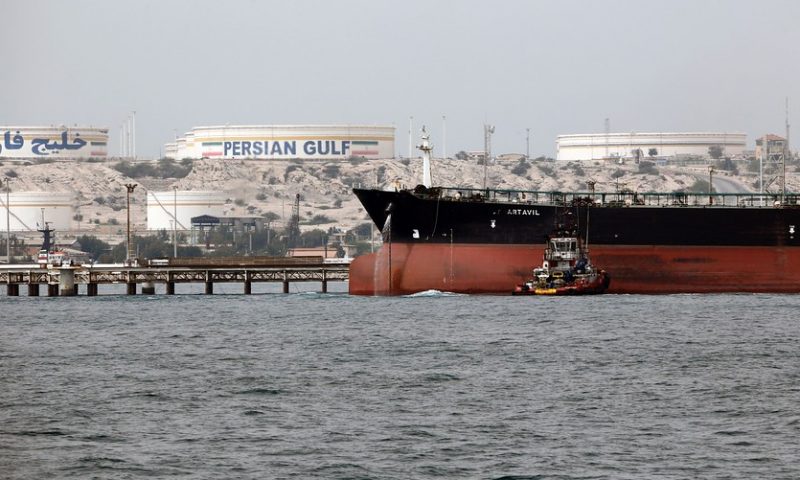Incident could reignite tensions in the Middle East
Oil prices jumped Friday morning after reports of an Iranian tanker explosion in the Red Sea raised the possibility of tensions in an already simmering Middle East.
The tanker sustained damages after being hit by missiles that were launched from the Saudi Arabian port of Jeddah, according to the state-run IRNA news agency, citing Iran’s National Iranian Tanker Co. The stricken vessel was identified as the Sabity, according to those reports.
West Texas Intermediate crude for November delivery CLX19, +0.67% climbed 86 cents, or 1.6%, to $54.41 a barrel, while the global benchmark, December Brent crude BRNZ19, +1.29% jumped 86 cents, or 1.5%, to $59.97 a barrel.
Potential for renewed conflict in the Middle East was clearly a fresh driver for investors Friday. Reports of the Iran tanker blast come amid allegations that the country has been behind attacks in recent months on oil tankers close to the Strait of Hormuz, a well-known oil choke point. Officials in the U.S and Saudi Arabia believe Iran was behind a missile attack on Saudi oil facilities last month, though Tehran has denied involvement in any attacks.
“Spare capacity remains fragile and with supply chain vulnerability a worrying concern at virtually every Middle East oil field, traders continue to hedge supply risk premium,” said Stephen Innes, Asia Pacific market strategist at AxiTrader.
Meanwhile, the International Energy Agency said it expects global demand of 1 million barrels a day in 2019 and 1.2 million barrels a day, in the following year. IEA attributed the downgrades of about 100,000-a-barrel-a-day from previous estimates for demand that has shaped up “to be the weakest since 2016, following evidence of a slowdown in several major consuming regions and countries, including Europe, India, Japan, Korea and the U.S.”
The report comes after the Organization of the Petroleum Exporting Countries, in its monthly report, trimmed its forecast for 2019 world oil-demand growth but left its outlook for 2020 unchanged. At the same time, it cut its outlook for non-OPEC supply growth in 2019 and 2020.
Hopes for a positive outcome to U.S-China trade talks helped drive sharp gains for oil prices on Thursday. WTI crude settled 1.8% higher at $53.55 a barrel, the highest front-month settlement since Oct. 1, according to Dow Jones Market Data. Brent closed up 1.3% to finish at $59.10 a barrel, the highest close since Sept. 30.

